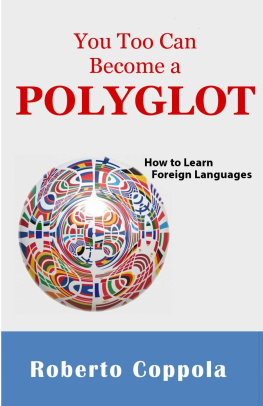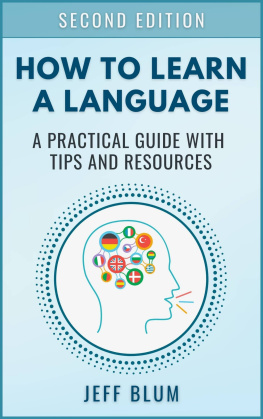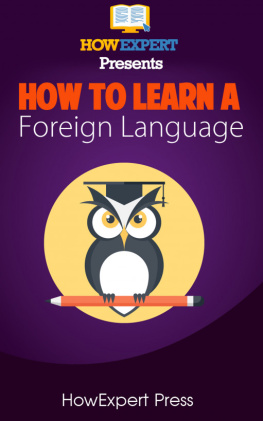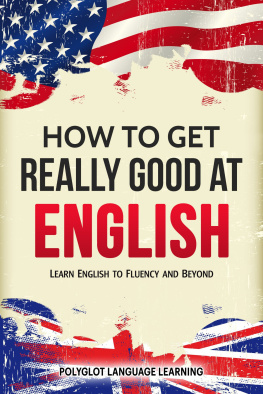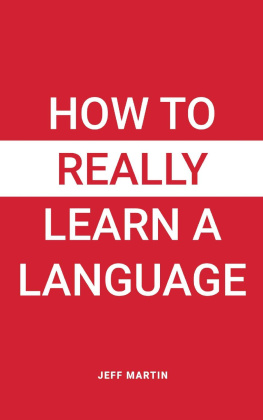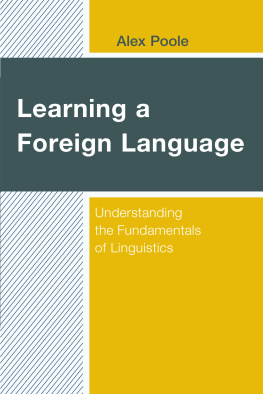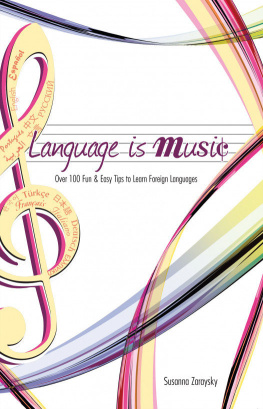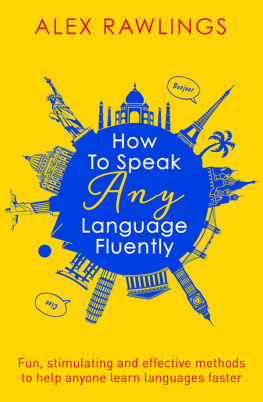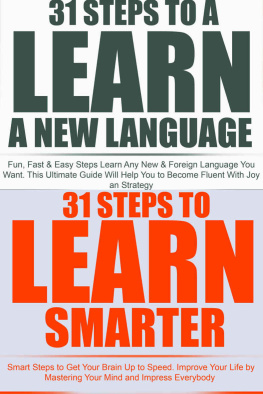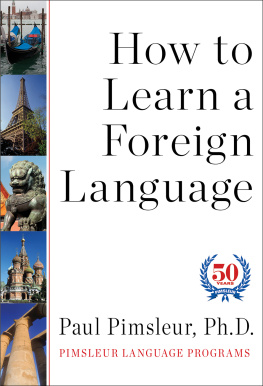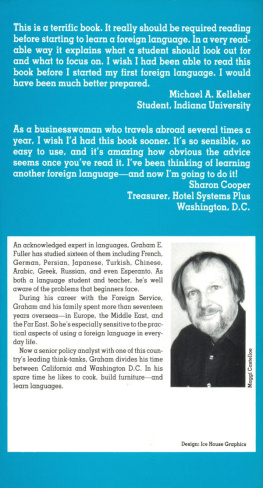YOU TOO CAN BECOME A POLYGLOT
Roberto Coppola
Translated by Diana Nanos
YOU TOO CAN BECOME A POLYGLOT
Written By Roberto Coppola
Copyright 2015 Roberto Coppola
All rights reserved
Distributed by Babelcube, Inc.
www.babelcube.com
Translated by Diana Nanos
Babelcube Books and Babelcube are trademarks of Babelcube Inc.
YOU TOO CAN BECOME A POLYGLOT
I ntroduction
- Lets get things straight
- Great polyglots of the past
- What is still valid and what is not
- Great polyglots of the present
- From your native language to your native language
- The infallible methods
- The perfect method
- Now its your turn, this is what you need to do
- Towards excellence
- Conclusions
Introduction
T he ability of speaking correctly a foreign language is frequently seen as the result of an innate gift, a type of genetic requirement that allows its possessor to communicate in a language other than his own; a language in which he learnt to express himself relatively easy and in a short period of time. Unfortunately, but at the same time fortunately, it's not like that. Unfortunately, for those who could possess such gift, fortunately for all the rest mere mortals, who lack such natural gift; they also have the same possibilities to learn one or more foreign languages using methods available to everyone.
This book has a unique objective: to indicate a precise path of learning a foreign language in a reasonably short period of time and to a satisfying level of speaking and writing communication.
To reach this objective, we will start taking as reference some great polyglots of the past and present in order to learn from them useful lessons and elaborate our own study method: the most efficient and fastest possible.
The polyglots that I have chosen are not absolutely the best but they are to our cause. They were chosen, that is, not because their talent is superior to others, but according to the relevance of the things we can learn from the methods they elaborated and used in order to reach their extraordinary results.
The indications that I have selected will serve to obtain the maximum results from three learning methods, making their usage faster, easier and most importantly infallible. The three methods are described in chapter 6.
1. Lets get things straight
W hoever speaks fluently a foreign language, acts with the same simplicity as when he speaks his native language. This ease induces the listener in many evaluation errors. The same thing happens when we listen to a musician playing a musical instrument with apparent ease. There is no effort, no difficulty. Everything is perfect and natural. This is the first myth to bring down.
*******************************************
-1
In order to learn to communicate with ease in a foreign language it is necessary to undertake a process of precise, rigorous and challenging learning.
*******************************************
B ut what does it mean precise, rigorous and challenging? It simply means that we need to follow well tested indications and respect some simple rules. It means that we must avoid some serious mistakes. Those mistakes that is almost certain to cause us failure.
A very useful provocation
If you had problems with learning one foreign language, learn four! Said like that, it sounds like a provocation. But in reality, it is a very useful advice and this book will make possible learning a considered number of foreign languages in a relatively short period of time. At this point you are probably wondering: but how is it possible to learn many foreign languages if it is already difficult just to learn one of them? The answer is very simple and refers to something that I was able to notice in many of my students:
*******************************************
-2
Setting the objective of learning three or four foreign languages requires planning and respecting a learning strategy.
*******************************************
W hile if we decide to commit to only one language, we risk to slow down the process, to dilute the commitment in time, and frequently, to abandon the study. Conclusion: no result and lots of frustration.
How much is necessary to know
This is a crucial question. I have met people who were tongue-tied in a foreign language even though they were convinced to speak it fluently. I have also met people who on the contrary, complained about their poor level of knowledge but knew how to express themselves fluently and properly. So there is the need to set some points of reference in order to establish, objectively, how to evaluate our communicative abilities and which level of knowledge we wish to reach.
For this purpose, the European Union joins in to give us a hand, since in order to harmonize the objectives of knowledge and the evaluation tools between the member countries, a Common European Framework of Reference of Languages (CEFR) was elaborated. This framework sets six levels of knowledge, from the Beginner to the Proficiency level and describes them in detail.
A1 Beginner level
Can understand and use familiar everyday expressions and very basic phrases aimed at the satisfaction of needs of a concrete type. Can introduce him/herself and others can ask and answer questions about personal details such as where he/she lives, people he/she knows and things he/she has. Can interact in a simple way as long as the other person talks slowly and clearly and is prepared to help.
A2 Elementary level
Can understand sentences and frequently used expressions related to areas of most immediate relevance (e.g. very basic personal and family information, shopping, local geography, employment).
Can communicate in simple and routine tasks requiring a simple and direct exchange of information on familiar and routine matters. Can describe in simple terms aspects of his/her background, immediate environment and matters in areas of immediate need.
B1 Intermediate level
Can understand the main points of clear standard input on familiar matters regularly encountered in work, school, leisure, etc. Can deal with most situations likely to arise while travelling in an area where the language is spoken. Can produce simple connected text on topics that are familiar or of personal interest. Can describe experiences and events, dreams, hopes and ambitions and briefly give reasons and explanations for opinions and plans.
B2 Upper Intermediate level
Can understand the main ideas of complex text on both concrete and abstract topics, including technical discussions in his/her field of specialization. Can interact with a degree of fluency and spontaneity that makes regular interaction with native speakers quite possible without strain for either party. Can produce clear, detailed text on a wide range of subjects and explain a viewpoint on a topical issue giving the advantages and disadvantages of various options.
C 1 Advanced level
Can understand a wide range of demanding, longer texts, and recognize implicit meaning. Can express ideas fluently and spontaneously without much obvious searching for expressions. Can use language flexibly and effectively for social, academic and professional purposes. Can produce clear, well-structured, detailed text on complex subjects, showing controlled use of organizational patterns, connectors and cohesive devices.
C2- Proficiency level
Can understand with ease virtually everything heard or read. Can summarize information from different spoken and written sources, reconstructing arguments and accounts in a coherent presentation. Can express him/herself spontaneously, very fluently and precisely, differentiating finer shades of meaning even in the most complex situations.
Next page
